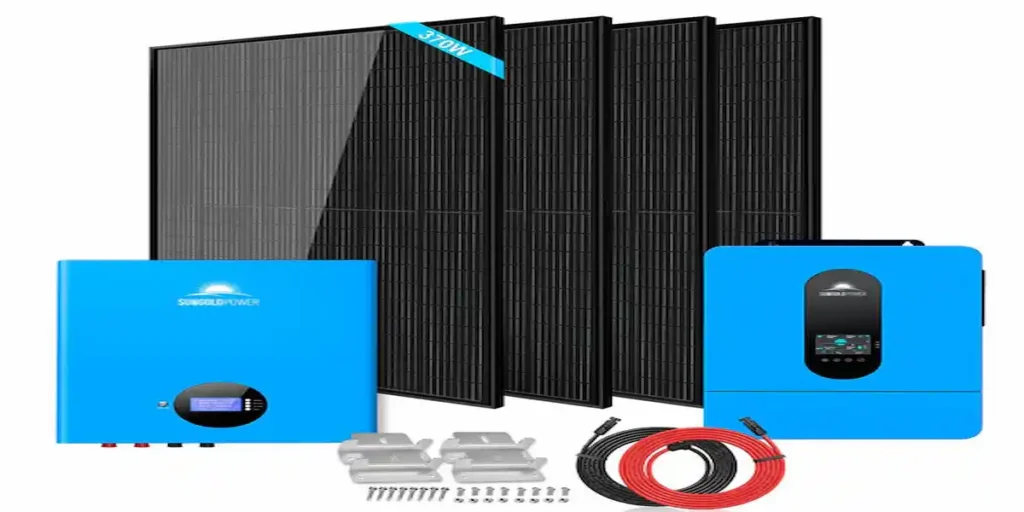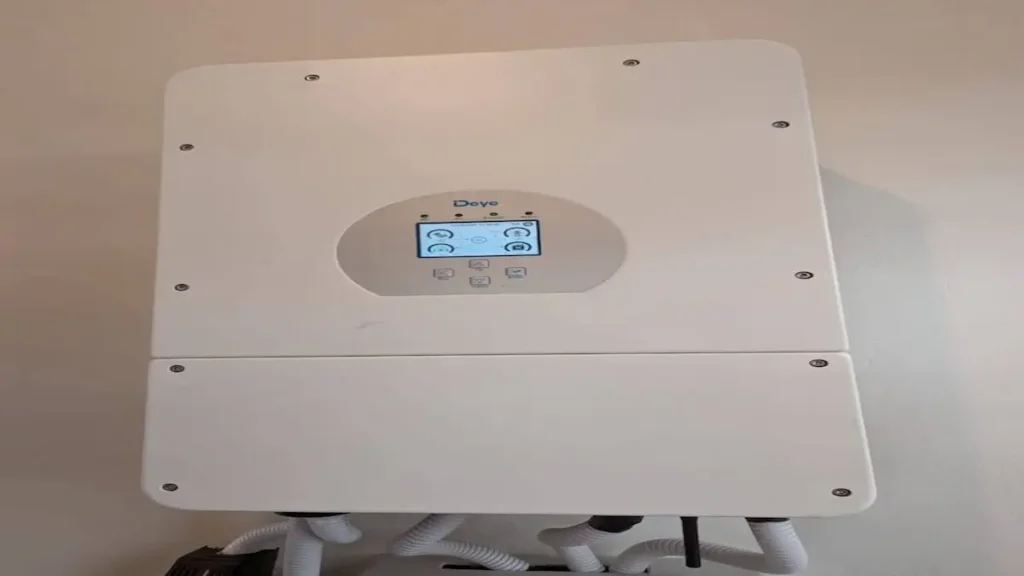Each month the same happens: your electricity bill comes in more than you anticipated, and when there is an outage from a storm or maintenance, you’re left sitting in the dark. Fear of being stranded in the grid is like pouring money down the drain—particularly if you live in the boondocks or where there is intermittent service. This is why off grid solar inverter buying is one of the greatest things you will ever do.
An off grid solar inverter doesn’t just turn sunshine into usable AC power—it sets you free from utility bills, blackouts, and energy insecurity later on. And once you’ve made the transition, you’ll never be looking back.
I’ll take you through what an off grid solar inverter is, why homeowners around the world are converting, and how to select the right unit for your application even if you don’t know where to start.
What Is An Off Grid Solar Inverter—and How Does It Work?
The heart of a stand-alone solar power system is an off grid solar inverter. It converts your solar panels’ DC power into AC power to power lights, appliances, and electric devices. Unlike public power’s grid-tied power utilities but only independent of public power with the power stored in a set of deep cycle batteries for nighttime or non-sunny days use.
It is programmed to control solar energy generation, battery charging, and on-call power supply. MPPT charge controllers, battery overcharge protection, even remote monitoring are available as well. It’s all about supplying clean, safe energy flow—together with no contact whatever with the utility on site.
Why You’re Wasting Money if You’re Still on the Grid
Consider paying your entire annual electric bill for years with no revenue return for show. That’s what being a grid dependent achieves. Even with incentives layered in or incremental tiered rates, electric bills keep going up—but with no revenue return.
Then consider the purchase of an off grid inverter and solar system. Front-end buy and installation will give you a front-end initial expense—but then your energy is literally at no expense. In comparison with metering off the electric current supply grid, solar savers repay and keep saving you hundreds of thousands of dollars over centuries.
And consider reliability: blackouts ruin food, stop work, and ruin health equipment. Once you’re off-grid, you’re insulated from all those dangers—power is yours twenty-four/seven.
Recommended Posts
The Top Benefits of an Off Grid Solar Inverter
• True Energy Independence
You decide when to power your home, not the power company.
• Long-Term Cost Saving
With zero monthly fees and the lifespan of solar panels usually more than 20 years, you repay your investment and save thereafter.
• Good for the Planet
You reduce carbon emissions and fossil fuel reliance. Solar is renewable energy, silent, and free.
• Scalable and Flexible
Begin small and scale large upon request. These systems generally become affordable to install turbines or more panels sometime in the future.
• Very Low Maintenance
With no internal mechanical parts in the inverter and simple panel cleaning, off-grid systems usually involve little maintenance. 10-25-year warranties are normally provided by the majority of manufacturers.
• Offsite Installations or Power Safety at Blackouts
Ideal for rural settings, cabins, or for anyone who doesn’t like blackouts.
Choosing the Right Off Grid Solar Inverter for Your Needs

The test parameters involved in testing an off grid solar inverter are:
1. Pure versus Modified Sine Wave
Select a pure sine wave if you power sensitive items such as laptops, refrigerator sets, or good quality lamps. A modified sine wave inverter becomes more affordable but cannot power cleanly on any piece of equipment.
2. Battery Compatibility and Protection
Look for inbuilt protection schemes—over-discharge, overcharge, and temperature protection—to extend the life of your battery bank.
3. Efficiency Ratings
High-efficiency inverters (maximum ~95%) waste less energy as heat. MPPT solar charge controllers charge solar panels to capture maximum power from the solar panels.
4. Scalability and Size
Ensure your inverter can meet your current needs and your future needs—some systems can be augmented with more batteries or panels.
5. Industry Reputation and Warranty
Purchase from companies which back their equipment with better service and 10-25 year warranties.
Our Best Off Grid Solar Inverters for 2025 Recommendations
These represent a couple of the most reliable and highly-recommended models for this year—ones which are suitable for an off-the-grid solar lifestyle:
Renogy 3000W True Sin Inverters with
Clean, reliable power in a small package. Can be used with multiple batteries types and is great for small off-grid cabins or mobile living.
Eco-Worthy 3500 W Off Grid
It’s a budget-friendly, tried-and-true unit for a small cabin, RV install, or first off-grid install. It has acceptable battery compatibility and is incredibly reliable for a unit at this price.
Victron Multi
A high-end unit with sophisticated battery charge management, remote visibility, automatic transfer with no transfer transients. Ideal for deep off-grid applications.
Growatt SPF 5000
Singles an MPPT charge controller with an inverter. Offers Wi-Fi monitor with LCD screen—a great fit for smart-controlled small-sized systems.
Between these options, Eco‑Worthy is the way to go if you’re new to this and want something dependable at an affordable price.
What Will It Actually Cost—and Is It Worth It?
One can purchase an initial €10,000–€20,000 (or USD equivalent) for a small-to-medium off-grid package (with panels, batteries, and inverter But if your electricity bill was €150 per month (≈ €1,800 per annum). For 10 years, you’ve paid the utility €18,000. If your off-the-grid setup costs €12,000, you’d be even money 6–7 years down the line—and your power is literally free from then on. This does not include intangible advantages like blackout resilency, sustainibility, or energy independence.
Questions People Ask (FAQ)
Is the use of batteries in off-grid inverters compulsory?
Yes—batteries are needed. Off-grid inverters differ from grid-tie systems in running off stored power when the sun isn’t out.
What type of batteries do off-grid inverters accept?
Most off-grid inverters are compatible with lithium-ion, lead-acid (AGM), and gel batteries. Simply look at your inverter specifications for compatibility.
Off-grids can these inverters operate at night?
Yes—assured your battery bank is completely charged. They supply power for your appliances and lights with power taken from stored energy.
For what duration can an off-grid inverter supply power?
That will be a factor of your load and your battery bank capacity. Larger banks will power your house for hours—even days—when properly sized.
Do off-grid inverters represent a maintenance issue?
Not quite. They generally require no more than yearly tests and infrequent cleaning of panels. Warranty protection typically lasts between 10–25 years.
For how many years are off-grid inverters built?
Most batteries last 10 to 15 years, premium ones sometimes over 20. Warranty periods often reflect desired lifetimes.
Are off-grid inverters efficient?
Yes. Energy conversion efficiency is between approximately 85% and 95%, with virtually no waste energy.
Last Thoughts
In spite If you’re still paying monthly for grid electricity—or worse, seeing groceries waste when power goes out—it’s time to think about whether your money could be spent more wisely. An off grid solar inverter is a central part of something much bigger—it’s the center of your energy independence system. For the amateur, Eco-Worthy 3500W provides a starter point of entry. For expanding energy demands or aspirations, Victron, Renogy, or Growatt provide high-end scaleable sets. Stop paying meter man for bills that keep going and going. Invest in a system that will reward you—literally and metaphorically. You’ll be thanked by your wallet, your house, and your future self.
Author
Top Solar Picks, founded by John, a Solar Energy Writer and Researcher with over 12 years of experience in renewable energy, is dedicated to helping homeowners and businesses make informed, data-driven decisions about solar power. John’s expertise and research pr...

